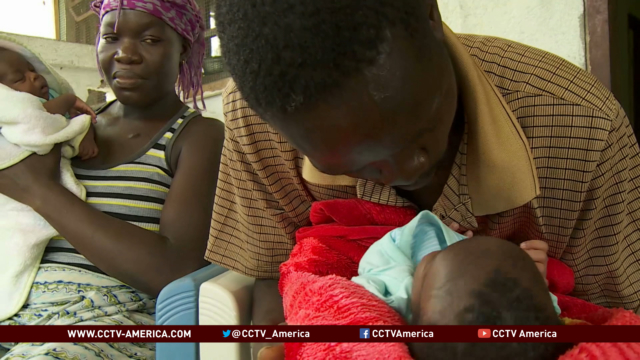One key reason Ebola has spread so quickly is that local health services can’t cope with its rapid progression. Many public hospitals in Liberia have closed because staff and patients fear they’ll be infected if they go there. CCTV America’s Katerina Vittozzi reports from Monrovia.

Even before the outbreak began, there were only 50 trained doctors for the country’s 4 million residents. Since the crisis began, healthcare services in Liberia have been stretched beyond capacity, making access to healthcare services even harder.
Though choices have to be made every day for those still trying to help. Dr Martha Zarway runs a private clinic treating every-day illnesses. She has tried to accept every case, but she also has to protect her 54 staff and other patients. If she’s worried someone may have Ebola, she feels compelled to turn them away.
“If I am not sure what I am dealing with, I tell them that number one: I am ready to help,” said Zarway. “But since your history is not too clear you need to go to the Ebola center and get yourself tested, and if you can bring back a negative result, then of course we can start from there. We’ve turned a couple of cases away like that.”
Even so, it’s not just clinics who are refusing patients. Ill people themselves are often too scared to go to hospitals, fearing they may catch Ebola there. It’s led to self-treatment, resulting in a big increase in sales of over-the-counter drugs.
Aid agencies believe that if there are enough Ebola-specific clinics, it will free up more general medical doctors. Even if there are the resources, however, it will be a long time before sick people feel safe enough to seek medical help.
 CGTN America
CGTN America
